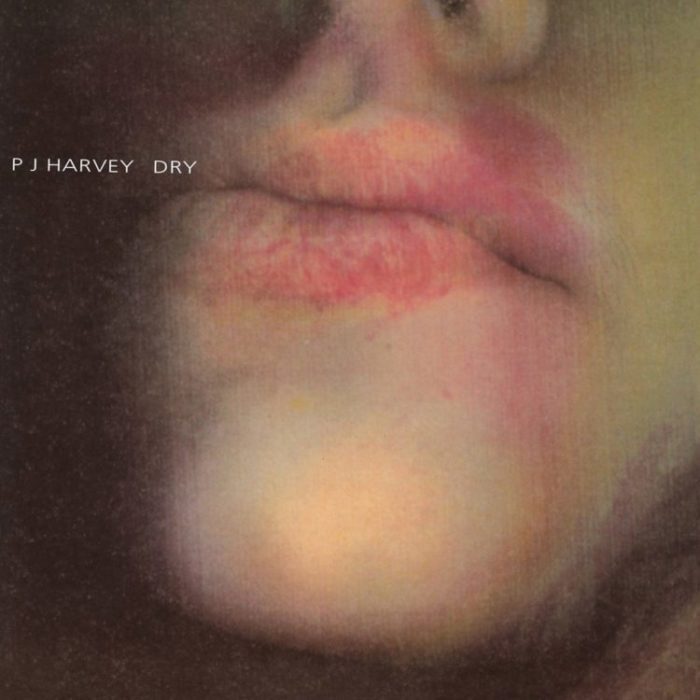

January is not necessarily going to be the big refreshing escape from the year we’ve had, going by the news and the pandemic numbers. It won’t be the celebratory holidays we may have anticipated months ago. But what hasn’t changed, and what may bring some comfort, is that January is always prime reading time. That brief window – for most of us – between work ending in 2020 and starting up again in 2021 is just enough to get through at least one or two juicy reads that give you the energy and inspiration to return to work without losing your mojo.
Confession: I learnt piano for many years and I was pretty good, but I gave up – mostly to spend all my time smoking and drinking with a ragtag collection of fellow 15-year-olds at whoever’s house was devoid of parents. That’s about as close as I got to the rock ‘n’ roll lifestyle. I never was a girl in a band, but when I think to my life’s inspirations in regards to attitude, fashion, dedication to a creative existence, bravery and originality, they are women in music.
Chances are, if you’re an Audiofemme reader, you too are inspired and influenced by pioneering, persevering women in music. If there’s ever been a time we need to feel inspired by women to overcome the odds, deal with shit and continue to do what they love for the sake of it, it’s now. Consider this a belated Christmas present, then. This is a guide to the best books on modern women in music, in my experience.
Having mentioned girls in bands, let’s start with Kim Gordon’s Girl In A Band, which was released in 2015 and made it to the New York Times Bestseller list. Gordon was the co-founder (and sole female member) of Sonic Youth, a ’90s post-grunge act that fused dreamy fuzz with anthems to teenage lust and frustration. With her slash of red lipstick, tangle of blonde hair and too-cool-for-you attitude, Kim Gordon was the ultimate ’90s alt-rock icon. Girl In A Band covers her childhood, her first creative love – drawing, painting and sculpture – and her days in Sonic Youth, too often stymied by the men around her. She bravely confesses truths about her marriage to the revered Thurston Moore, frontman of Sonic Youth, and the disintegration of their relationship.
In October 2020 she released No Icon, a curated collection of images and scrapbook-style memoirs of Gordon’s Californian youth in the 1960s and ’70s, Sonic Youth in the 1980s and 1990s. In addition to previously unseen photos, there are also hand-written lyrics, newspaper cuttings and all sorts of Sonic Youth/Kim Gordon paraphernalia that make this a keepsake for fans and a treasure chest of discovery for fans-to-be.
The foreword to No Icon was written by none other than Sleater-Kinney’s Carrie Brownstein (also of Portlandia, bless). Brownstein’s 2016 memoir Hunger Makes Me A Modern Girl was so compelling, I admit I lay in bed reading it all day and had to force myself to leave the last chapter until the next day so that I didn’t miss it too much when it was over. Brownstein is candid in talking about the politics and sometimes fractious nature of working with a group of impassioned women, sharing rooms and weeks on the road in close proximity. Brownstein’s ability to tell a story, with a measured dose of hilarity and awkward truth, was evident in Portlandia, so it was unsurprising that her memoir had the raw, vulnerable truthfulness of a personal diary but the strong narrative of someone who is skilled in telling a story from start to finish without losing the momentum of fascination.
If Sleater-Kinney were the 1990s underground punk-rock phenomenon for so many U.S. girls, then Viv Albertine’s The Slits were the original she-punks. Emerging in the 1970s in the midst of a wave of angry boys on stage, Albertine’s no-holds-barred memoir doesn’t paint a pretty picture of being a girl in a band, nor a woman in the world. Clothes, Clothes, Clothes, Music, Music, Music, Boys, Boys, Boys is the ultimate inspirational read. It made me laugh out loud, take deep, reassuring breaths and reach for the tissues, grip my fingernails so hard into my fist I thought I’d broken skin… it made me react.
For Albertine, growing up in a council home with her single mother and sister, the only reality for her seemed to be watching boys in bands and – at best – dating them. She developed a love affair with the electric guitar, though, and taught herself how to play with the support of her boyfriend at the time. From those early days of hanging out in Vivienne Westwood’s SEX shop, getting raucous with Johnny Rotten and Sid Vicious in abandoned squats, and being belittled and degraded by roadies and engineers as inferior to male musicians while on the road with The Slits, the book traverses Albertine’s abortion, her struggles to have a much-wanted child via IVF later in life, her marriage and subsequent divorce, and her return to writing, recording and performing as a solo artist in her 60s. It’s no surprise this brilliant book is being translated into TV.
Memoirs are my favourite way to climb into a musician’s mind and poke about in their memories, finding the nuggets of gold that will sustain my creative soul for life. A good set of essays, or insightful analysis, when written with people and genuine experiences at its core, can also be food for thought. I’m currently reading Revenge of the She-Punks by Vivien Goldman, which was released in 2019. Goldman, now in her 80s, is on the cusp of releasing her first punk album in 2021. Known as “The Punk Professor” due to her transition from a music journalist/band manager/musician/broadcaster/biographer (and more) to adjunct at New York University’s Clive Davis Institute of Recorded Music, this is a woman who lives, breathes and creates punk rock music. She-Punks looks at the feminist history of punk rock, encompassing The Slits, Bikini Kill, and L7 all the way through to Pussy Riot in the 2000s. Consider her the expert.
Other titles to add to your reading list include Patti Smith’s Just Kids (among others), Poppy Z. Brite’s Courtney Love: The Real Story (as well as her diaries), Debbie Harry’s Face It, Chrissie Hynde’s Reckless: My Life as a Pretender and The Go-Go’s Kathy Valentine’s All I Ever Wanted: A Rock ‘N’ Roll Memoir.
Whether you’re actually a musician or an aspiring one, or women who make brave choices are your spiritual sisters, these books are likely to move you. They’ve certainly moved me, and fundamentally assured me that in my strangeness, my deep need to create, my ability to survive while making mere pennies for a living, are all perfectly valid ways to live in this chaotic, strange world that is not so friendly to women. I hope they’re nourishment for you, too.
Share your favorite punk rock reads with Cat Woods on Twitter or Instagram.





